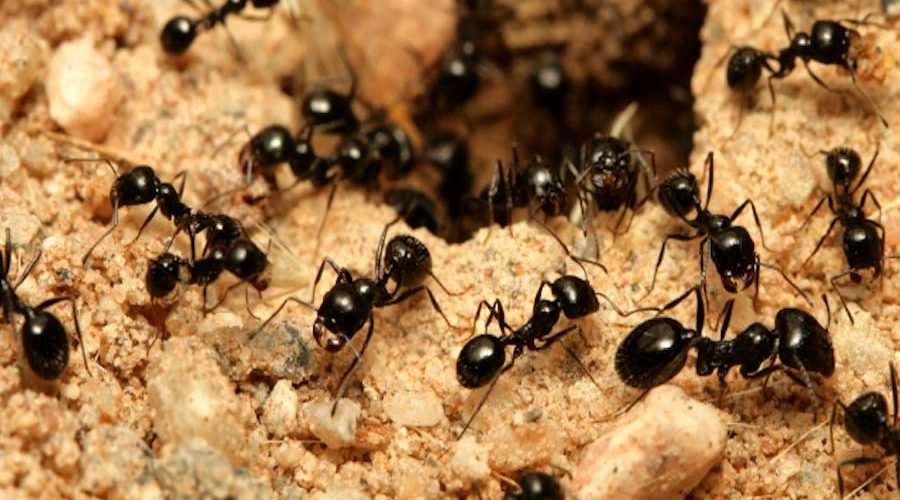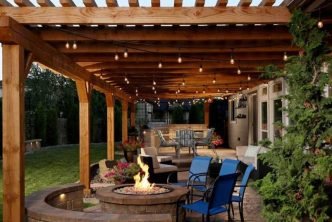Our house is supposed to be a place where we feel safe. But what if our house has been infiltrated by these pesky pests that just won’t go away? Small or big, these pests should not be present where we rest and live. Today, we will talk about one specific pest, ants, and how they are detrimental to your home.
Table of Contents
What Are Ants?
Ants are common pests found in a house. They are tiny social insects that live in colonies because they need each other to survive and keep their colonies going. There are three kinds of ants – queen, female, and male. Queens are those that lay eggs, thus, making the colony bigger. Female ants or worker ants do not lay eggs but rather take care of the eggs of the queen. Males are the smallest among the three and are responsible for mating with the queens. But there are also different types of ants that are commonly found inside and around your home.
Fire Ants
Fire Ants come from South America, and they are known for their aggressive nature when they feel threatened. They are identified by their coppery-brown color. They will bite you and inflict a sting and venom that is painful. Their bite will soon turn into a red bum that later on will become a white fluid-filled blister.
Field Ants
Field Ants are called “fields” because they are found outside, and they create their nest outside, such as in a field, park, garden, or lawn. They are also called “thatching ants,” “red ants,” and “wood ants.” Field ants tend to be larger than other types of ants and are commonly confused with carpenter ants. You can distinguish them by their pale yellowish, reddish brown, or black color.
Argentine Ants
Argentine Ants are from states and countries in South America like Argentina, Uruguay, and Brazil. These invasive pests are wingless and have dark brown to black color. When you crush or squish them, they will produce a musty odor.
Carpenter Ants
Carpenter Ants are called “carpenters” because their nests are made from wood that they chew with their strong jaws. They are known for their red, black, or a combination of both colors.
Black Ants
Black Ants are the smallest among the five. Obviously, their color is black. They have a stinger, but these stingers are small and weak, thus deemed ineffective. You commonly see them from June to August and in wooded areas. They eat grease, oil, meats, fruits, and vegetables.
Damages Ants Can Do
These small pests are so small that you may find them harmless. They are indeed less harmless compared to other pests. However, they can also inflict damage on your house. Ants have mandibles that they can use to chew wires, insulations, drywalls, and metals that may cause a fire in the long run. They chew on these things to create tunnels and pathways that they will connect to their nests.
Another damage that ants cause is damage to your cabinets or wood containers. Ants are attracted to foods. Foods that are stored in your kitchen cabinets and other wood containers will attract these pests to chew on the cabinets and containers to get the food. And once these pesky pests come in contact with your food, they may also contaminate it. Ants can carry bacteria that they get from different places that they go to when they are wandering and traveling around.
Preventing Ants From Damaging Your Home
As they said, prevention is better than cure. You can also prevent infestations before they happen. Below are the things you can do in order to prevent ants from infesting your home.
- Remove standing water – Just like mosquitoes, ants are also attracted to standing water that emits moisture. Therefore, remove standing water, repair leaky pipes, and dehumidify damp areas at your home. Additionally, ensure that water coming from your gutter and downspouts are flowing away from your house’s foundation.
- Remove crumbs or leftovers – As mentioned earlier, foods attract ants. We cannot completely eliminate food at our house since we also need food to survive. However, you may reduce their food sources by removing unnecessary crumbs or leftover food at your home. Moreover, store your food in an air-tight container that prevents pests from coming in contact with your food.
- Seal gaps and cracks – Gaps and cracks are entryways of the ants. Seal these up so that ants will not get inside your house.
- Spray Peppermint Oil – Does peppermint oil kill ants? The short answer is yes. Like garlic, ants also hate peppermint because it has strong smell and contains potent confuse the ants, thus, disrupting their navigation ability. Spray this mixture in areas of your house that will most likely attract ants.
- Call an exterminator – If all else fails, your best solution is to call a professional pest control company that will surely eliminate any pests you have, like ants, and prevent them from coming back.





